Sam Breadon
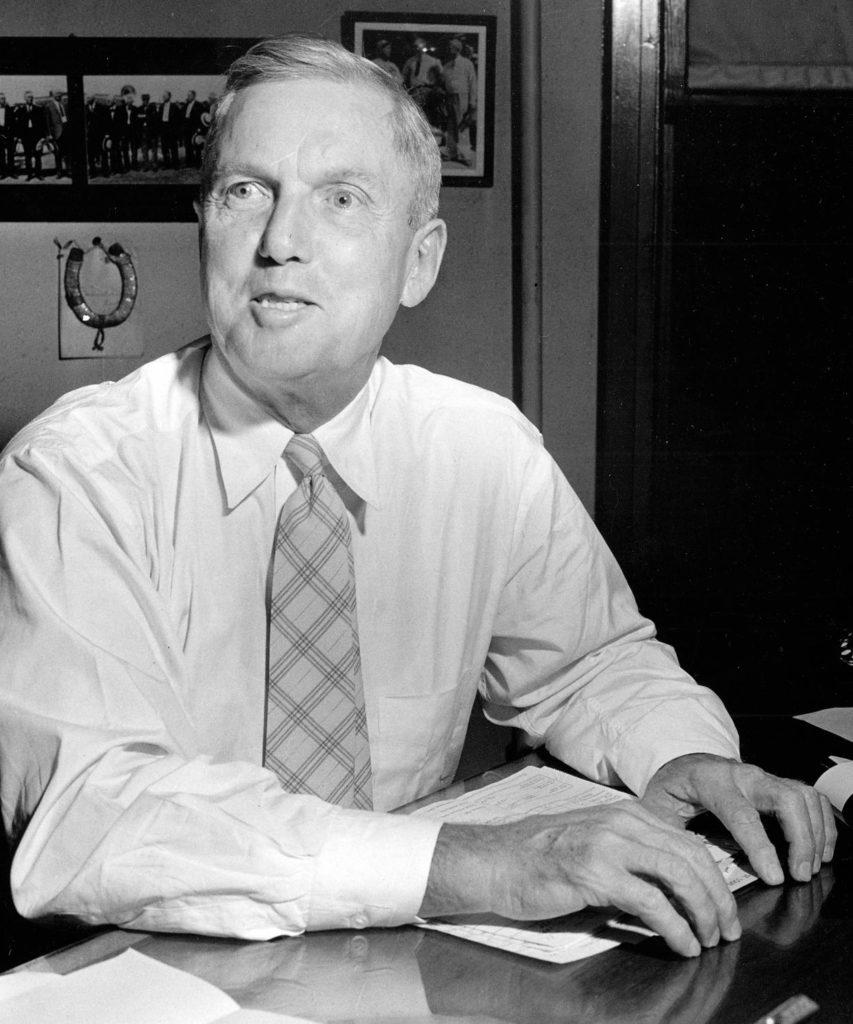
| Birthdate | 07/26/1876 |
| Death Date | 05/08/1948 |
| Debut Year | 1917 |
| Year of Induction | |
| Teams | Cardinals |
| Position | Owner |
Some feel that the omission of Sam Breadon from the Hall is a glaring injustice. His teams won 9 National League pennants & 6 World Series titles.
Leave a commentIn the collection:
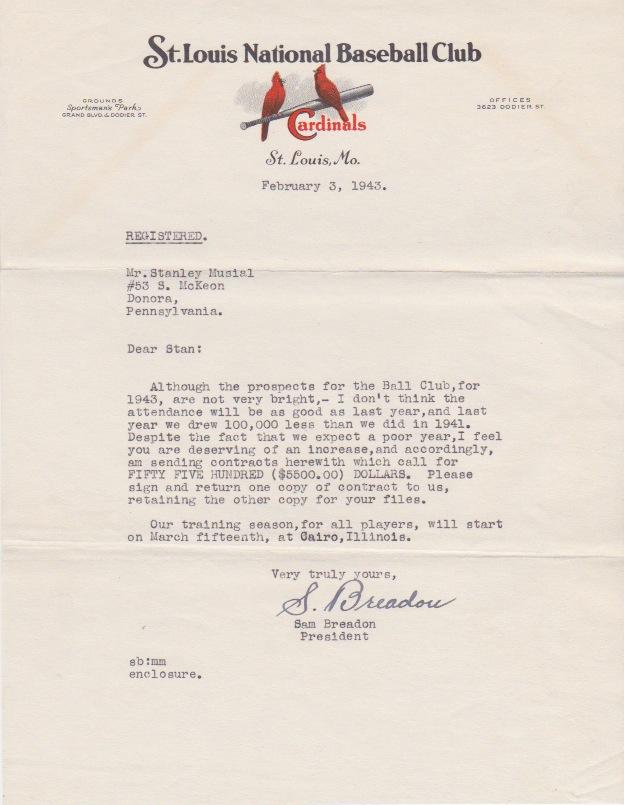
The Cardinals won nine pennants and six World Series titles while Sam Breadon was owner
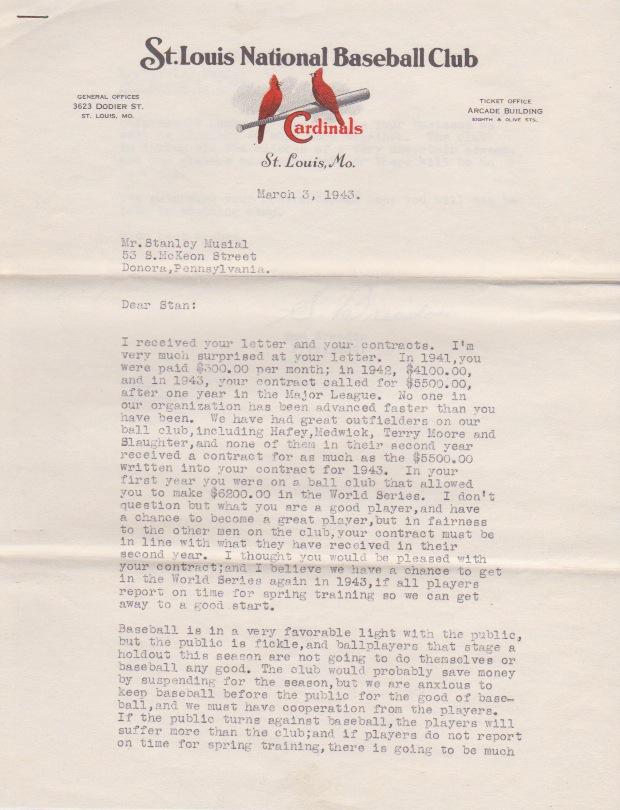
Sam Breadon played hardball with a young Stan Musial during contract negotiations
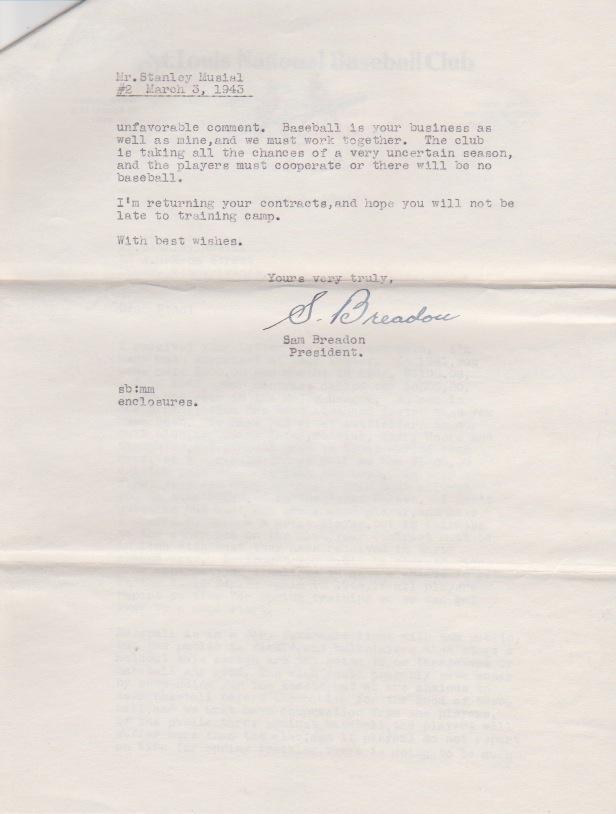
Breadon owned the Cardinals from 1920-1947
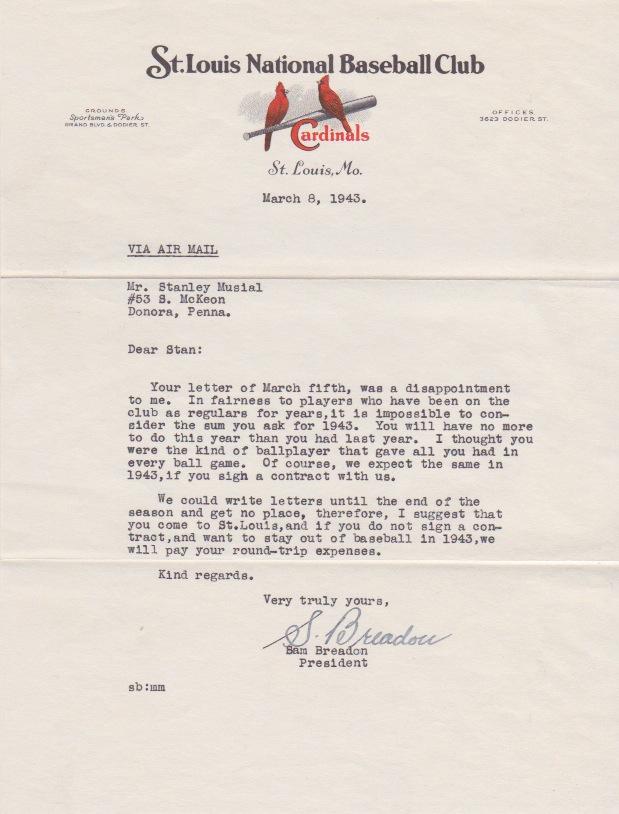
Breadon blasts Musial in the final letter
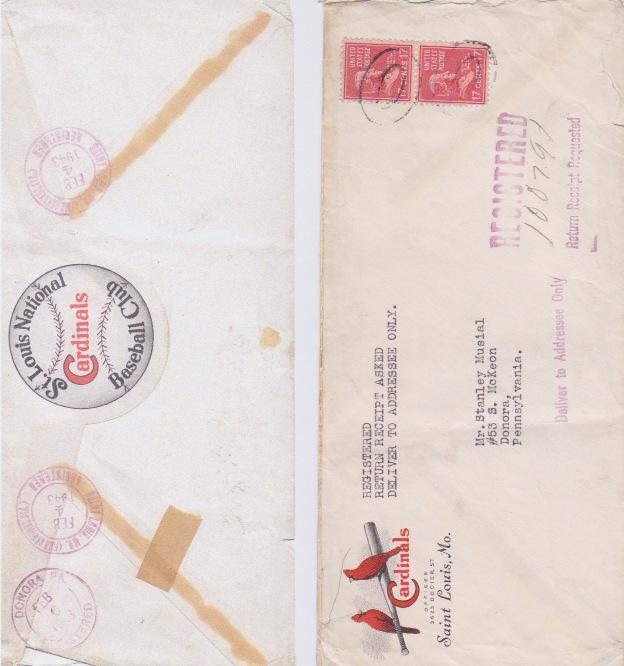
Front and back of the envelope that enclosed the first letter.
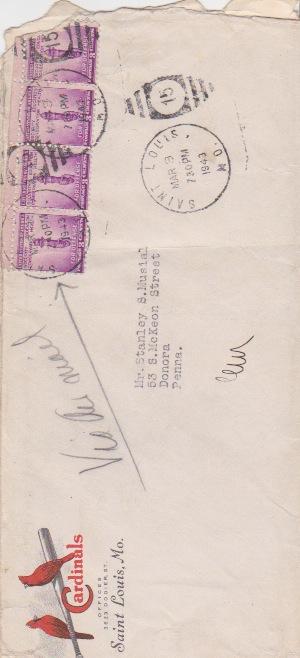
Original envelope with March 3, 1943 postmark
Plenty of postage was required as this envelope housed the two-page letter and two copies of the contract the Breadon wanted Stan Musial to sign.
Autographed letters are made more attractive when paired with their original envelopes.
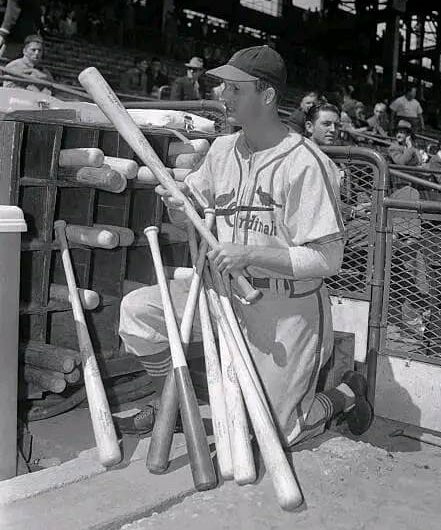

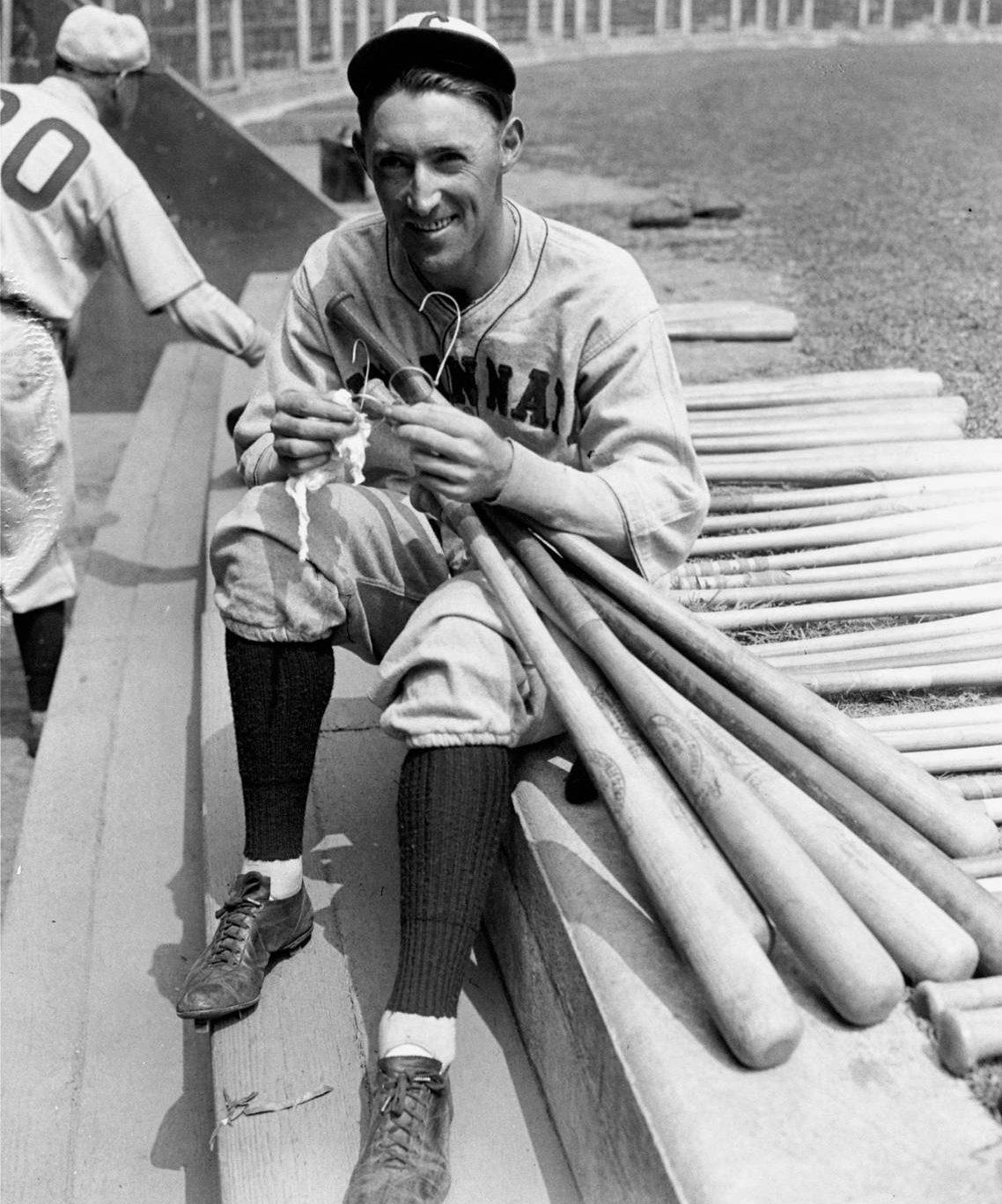
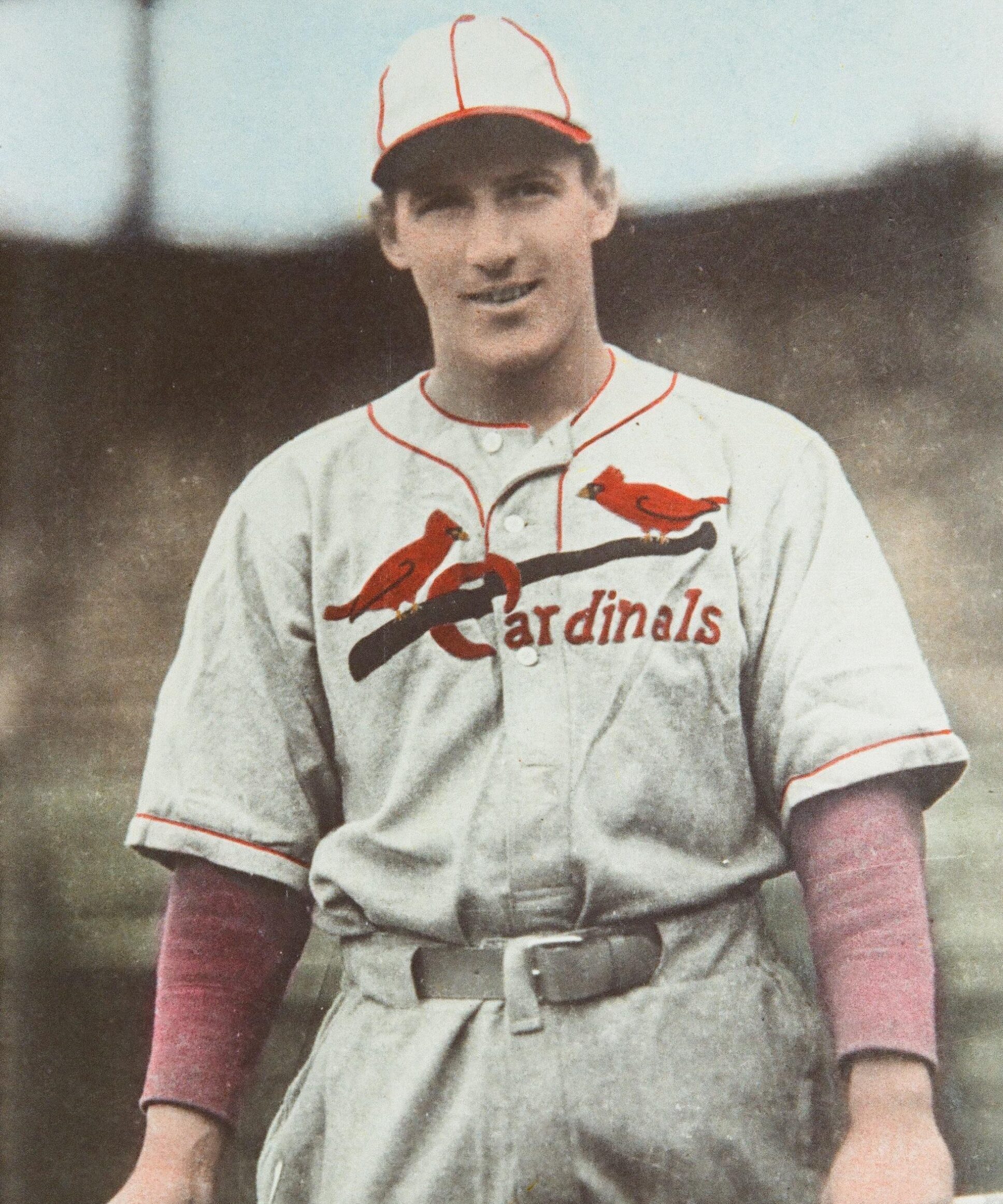
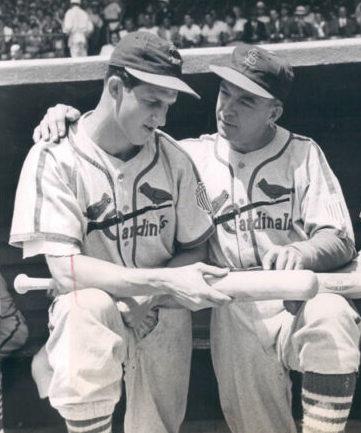
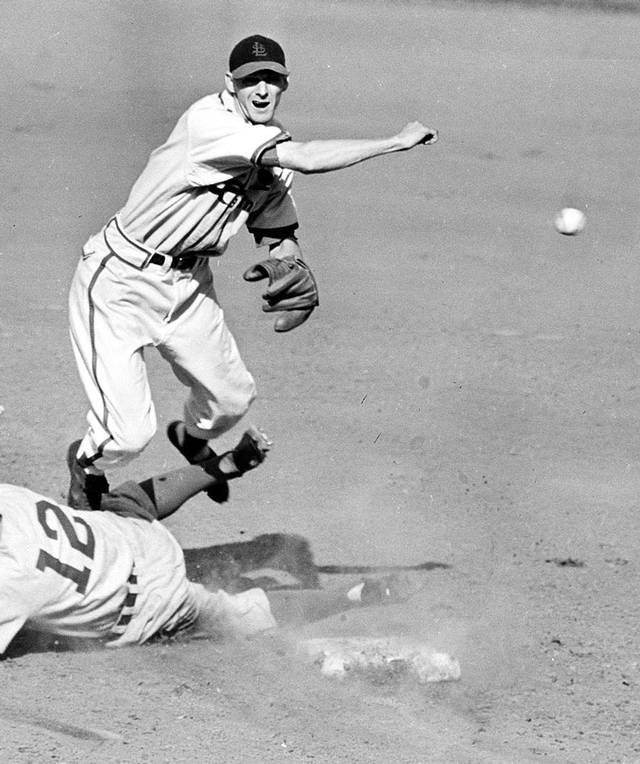
I’m not even a Cardinals fan (I’m a Cubs fan) and I think Breadon should be in the Hall of Fame, no doubt about it. And I think that eventually he will be.
As a Cubs fan that’s big of you, Steve. Let’s hope Mr. Breadon gets in!
Fascinating exchange, the economic dynamic of the times was certainly an interesting piece of history. I looked up that address on Google, the Cardinals spelled his address incorrectly, it is actually McKean.